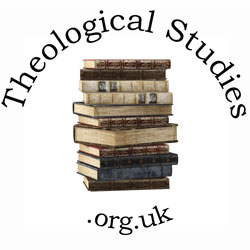Charles Harold Dodd
(1884-1973)
F.F. Bruce
Theology on the Web helps over 2.5 million people every year to find high quality theological resources that will help to equip them to serve God and to know Him better (2 Timothy 2:15). Like other websites that provide free services, it is dependent on donations to enable it to grow and develop and only 0.004% of visitors currently do so. If you would like to support this site, please use one of the options to the right of this message.
The Witness 103, No. 1235 (Nov. 1973): 424-425.
[Reproduced
by permission]
[p.424]
With the death of Professor C. H Dodd on 21st September, 1973, there passed from our midst the acknowledged doyen of British New Testament scholars.
As I write, I ought to declare my interest in doing so: twice in my career I have been appointed to a post which he had previously held—once as a lecturer in the classical department at Leeds University (after an interval of about 30 years) and more recently as Rylands Professor in Manchester University (after an interval of 24 years). For Professor Dodd’s expertise as a New Testament interpreter was based on a solid foundation of classical study. There was more to it than that, of course: there was a brilliant intellect, a sober judgment and (not least) a reverent humility.
He taught New Testament successively at Mansfield College, Oxford (1915-30), at Manchester University (1930-35) and at Cambridge, where he was the first Free Churchman to occupy a University Chair of Divinity—the Norris-Hulse Chair (1935-49). With his retirement from the last-named post at the age of 65, his activity and output were by no means diminished. From 1950 onwards he served as Director of the New English Bible. Those years also saw the publication of two major works on the Gospel of John and of his latest work, a study of the life and ministry of Jesus, entitled The Founder of Christianity.
[p.425]
His earliest writings reflect something of the climate of theological liberalism in which he was brought up. It would be inaccurate to say that his later writings reflect a different climate; they helped to create a different climate. For Professor Dodd was a leading pioneer in the ‘Biblical theology’ movement; indeed, so far as Britain is concerned, he might justly be called the pioneer. His most seminal works were his Parables of the Kingdom (1935) and The Apostolic Preaching and its Developments (1936). The former was his first full-scale exposition of ‘realized eschatology’; the exposition was unacceptably extreme and received due modification in later writings. The latter work discerned a basic narrative outline underlying the apostolic message as we find it quoted in the New Testament letters and in the speeches in Acts and underlying also the four Gospels, especially Mark and John. In According to the Scriptures (1952) he provided a fine contribution to a comprehensive Biblical theology by showing how the use of Old Testament contexts as ‘testimonies’ to the saving work of God in Christ supplied the sub-structure of New Testament doctrine. Over a period of decades he maintained the historicity of the gospel narrative in opposition to prevalent schools of thought which reckoned historicity a matter of irrelevance to the truth of the gospel. His last word was a reaffirmation of this emphasis. The Founder of Christianity (1971) has well been described as the `distilled essence’ of his life’s work. ‘It is a relief’, writes Dr. John Robinson in his foreword, ‘to be able to recommend a study from a first-rate scholar—indeed the front-rank English-speaking New Testament scholar—that is solidly grounded as well as being eminently readable.’
These last words remind us that Professor Dodd, for all his scholarship, had a remarkable gift for popular exposition. One of his earliest works was written for children: There and Back Again (1932). He was an effective broadcaster; two broadcast series which appeared in book form are specially worthy of mention: About the Gospels (1950) and The Coming of Christ (1951).
In an interview published earlier in 1973 Professor Dodd spoke of the increasing sustenance that he found in the great doctrines of Christianity: the incarnation, the atonement and, above all, the resurrection. Whereas at one time his belief in the life to come rested on a Platonic foundation, now ‘it was the resurrection of Jesus Christ that gave certainty of life after death’. It was in this certainty that he reached the end of his long and productive life.
© 1973 Paternoster Press. Reproduced by permission.
Prepared for the Web in October 2008 by Robert I Bradshaw.









